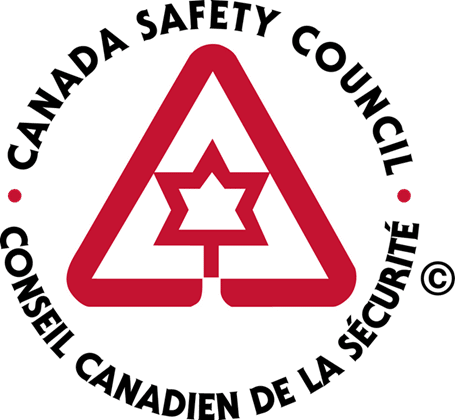Continuing the conversation on drugged driving
Impaired is impaired. Whether the cause is alcohol, drugs or something else, there is no excuse for driving impaired. Under the influence, you jeopardize your safety, your passengers’ safety and the safety of other road users.
For National Safe Driving Week 2012, the Canada Safety Council began a campaign to increase awareness about the dangers and deadly consequences of driving while under the influence of drugs.
Our campaign coincided with the start of the holiday season, a time when most messages about impaired driving warn against operating a vehicle while under the influence of alcohol. ‘Don’t drink and drive’ is a crucial message, but impairment goes far beyond alcohol and it is a reality throughout the year.
To continue the conversation started during National Safe Driving Week, the Canada Safety Council will explore issues around drugged driving over the next year. It is a deadly form of impairment that people need to understand. It needs to stop.
How much does it take to become impaired?
There is no simple answer to this question because it depends on many factors, such as the substance and the person taking it.
After having a drink and waiting a certain amount of time, for example, people are legally allowed to drive if they have very low blood-alcohol content. This amount varies by jurisdiction and graduated licensing rules.
With prescription and over-the-counter drugs, abuse or misuse can happen and needs to be recognized and corrected. This means that you should not exceed recommended dosages. You should not take someone else’s medicine, or use medicine to get high. Further, it means that you should read and respect labels and warnings. Talk to your doctor or pharmacist about how prescriptions or over-the-counter medicines can impact your driving abilities.
With illegal drugs, there is no safe amount. The whole purpose of taking these drugs is to get high! The impairment caused by illegal drugs can take hours and even days to wear off.
Who’s driving high and dying?
In one year, impairment by drugs played a role in at least 468 driver fatalities across Canada. That does not include passengers, pedestrians and other road-users killed or injured by a driver who was high on drugs.
Young drivers between 16 and 24 lead the way in fatalities that involved alcohol and/or drugs. According to statistics from the Canadian Centre on Substance Abuse, 27.6 per cent of fatalities among this age group were impaired by alcohol. Compare this with 26.9 per cent of fatalities who were impaired by drugs. Drugged driving is just as deadly and prevalent as drunk driving. It is a serious problem that needs to be addressed.
It’s not just youth getting high. Among fatally injured drivers 55 and older, impairment by drugs causing death is more common than drunk driving.
Canadians need to know that drug use extends across age groups, and that men and women are almost equally likely to be impaired by drugs. According to the Canadian Centre on Substance Abuse, 33.9 per cent of male drivers killed tested positive for impairing drugs, compared with 31.4 per cent of female driver fatalities.
What can you do?
As a host, it is your responsibility to monitor your guests and make sure they are okay to drive. Staying sober yourself is the best way to keep your senses sharp. Always see guests in and out of your home to assess their condition.
With alcohol, there are obviously ways to help limit how much your guests drink. For example, you can designate a bartender (people tend to drink less if they don’t serve themselves) and provide lots of non-alcoholic beverage options.
But monitoring or preventing drug use can be more difficult. You need to be watching your guests for signs of unusual behaviour, such as jitters or unexplained mood-swings.
Are some of your guests combining medication and alcohol? Does someone step outside and come back in smelling of marijuana? It may be awkward, but speak up! It is better to stop your friends from driving home high than to live with the tragic consequences of not saying something. This is a harsh reality, but one that needs to be faced.
If you have friends or family members who use illegal drugs, clearly communicate to them that your home is not a place where they can get high. Be sympathetic and supportive by encouraging them to get the help they need to overcome their addiction.
In our next article on this subject, we will explore countermeasures to drugged driving.
-30-
